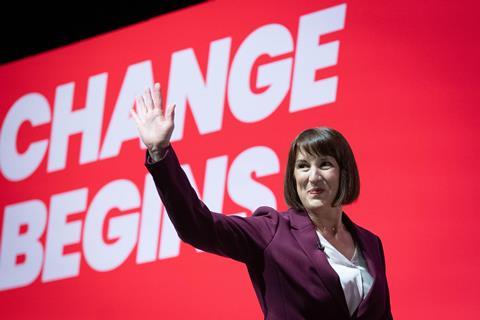‘Tough financial times call for wise stewardship, but this Government is penalising those who do just that – unlike Jesus’ teaching in the Parable of the Talents (Matthew 25),’ says Sharmila Meadows.

Rarely has a Budget been so eagerly anticipated. Not only the first of a new Government and the first Labour Budget in over 14 years, but it followed an election campaign built on the promise of no tax rises. A promise that has felt questionable.
Trailed like a Hollywood release, aspects of this Budget hit the media before their presentation to Parliament. Trailers included a rise in the minimum wage, bus fares and employers’ NI contributions and a redefined notion of “working people” – one that seemingly excludes those receiving money from property or shares.
This Budget is also the first to be delivered by a female Chancellor.
This Budget is also the first to be delivered by a female Chancellor. In this respect, when Rachel Reeves held the red box outside 11 Downing Street, it was an historic moment. But what does her Budget mean for ordinary women like us?
Reeves made clear that hers is a Budget for the “strivers”. As women, our lifestyles and financial concerns are wildly different: the married, working mother focused on childcare costs; the single woman building savings and investments for the long-term; the single mother trying to make ends meet; the self-employed looking to make their money grow. What binds us is a desire to be cut a little slack. What binds us is that we are all striving.
Reeves made clear that hers is a Budget for the “strivers”
To these ends, a quick glance at the headline announcements can make happy reading:
- Income tax and national insurance for employees stay the same.
- National living wage rises by 6.7% to £12.21 per hour.
- Funding for public services up by 1.5% in real terms.
- Investment in school breakfast clubs tripled.
- £6.7bn investment for the Department for Education.
- £22.6bn investment in the NHS’ operational budget, increasing appointments and reducing waiting times.
- Carers Allowance eligibility expanded to those earning up to £10k.
There’s much here to celebrate - but investment of this nature comes at a cost.
This Budget contains £40bn worth of tax rises, the highest in our nation’s history, carried by businesses, savers and borrowing. Businesses will pay NI on earnings over £5,000 (down from £9,100), with the rate rising from 13.8% to 15% to raise £25bn. There will be relief for small businesses as Employment Allowance increases from £5,000 to £10,500, meaning 865,000 employers won’t pay any NI next year.
The current 75% discount to business rates is slashed to 40%.
Inherited pensions will be brought into inheritance tax from April 2027, with exemptions when inheriting farmland stricter from 2026.
The Government was keen to say it is ending austerity. That may be, but austerity was introduced after the last Labour Government left office in 2010 with a note confessing the money had run out. Now, the Opposition says, it’s borrowing £1 for every £4 spent.
Women care desperately about their children and giving them a future. Strong public services are an essential part of that, but so is an economy that is sustainable and garners confidence. Businesses have taken a significant hit with this Budget, as have farmers. Those costs will be felt long-term by “working people” in the form of low wages and high prices. They make us less self-sufficient and a less attractive place to start a business, create jobs or invest. Despite a budget designed to generate growth through “invest, invest, invest”, the Office for Budget Responsibility (OBR) now offers a lower UK growth forecast than under the Conservatives.
Read more on tax
‘Labour’s new VAT policy is a threat to our Christian schools’
Rumoured changes to council tax discounts raise biblical questions of compassion and fairness
That being said, the markets remained calm, but this was not the promised Budget for “strivers”. It has taxed the job creators, the food providers and the prudent. Tough financial times call for wise stewardship, but this Government is penalising those who do just that – unlike Jesus’ teaching in the parable of the talents (Matthew 25).
It felt at heart a very Labour budget and that, of course, is how the nation voted. Only here lies a bigger problem. This Government consistently maintained that it would not raise taxes but has proceeded to tax business, savings, stamp duty and inheritance. That’s an issue of trust. At budget time, we talk about “winners and losers” and it feels like a lot of strivers just lost. If ordinary people cannot be confident in what the government promises, even the winners could have the rug pulled from under them at any time.



































No comments yet